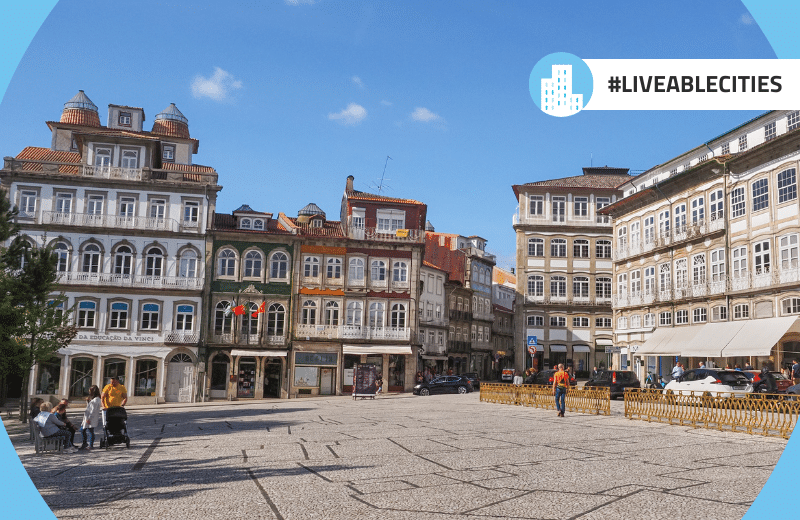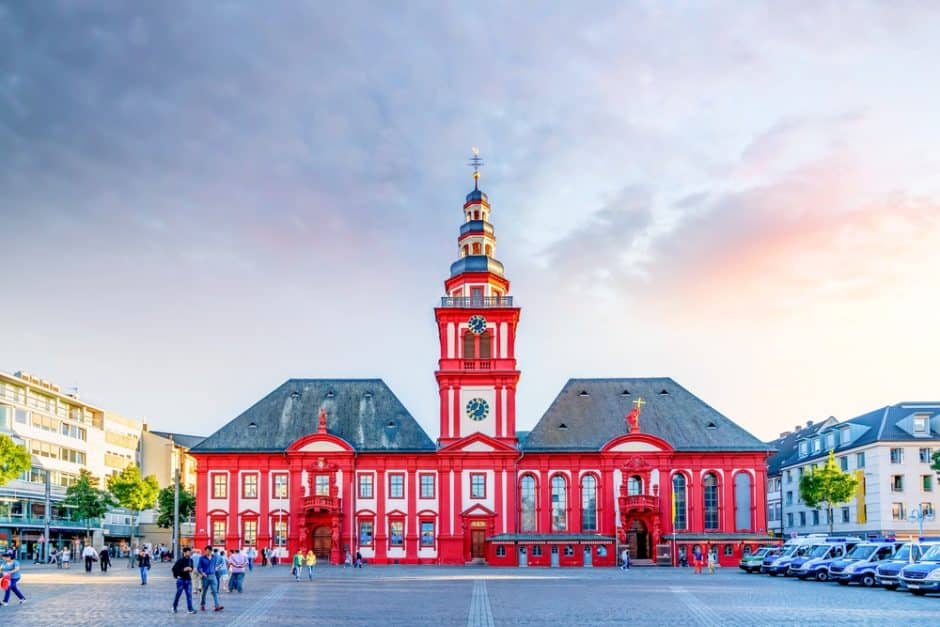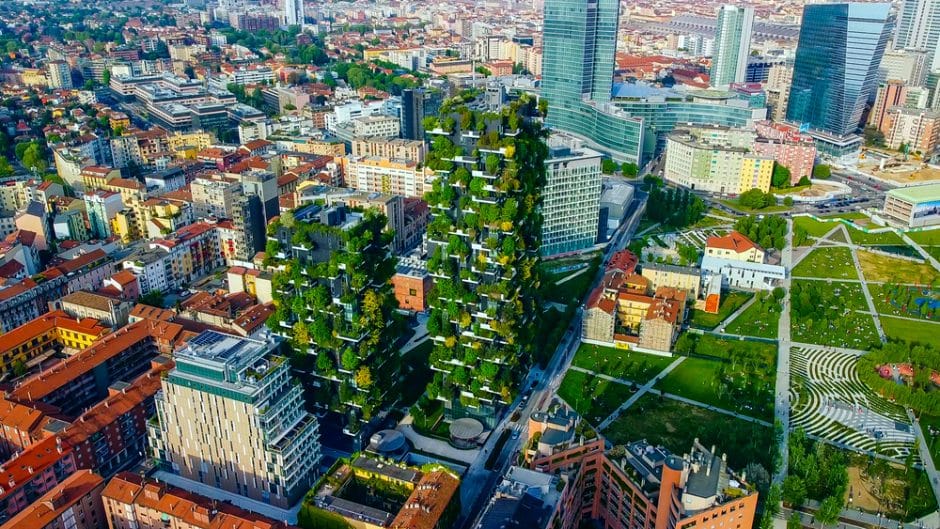European cities on the path to radical collaboration

Climate KIC is working with cities across Europe that are progressively leading the transition towards climate neutrality. But progressively is not enough. Climate efforts must happen much faster and must go further if we are to limit the impacts of climate change. To achieve the EU targets of 2030 and its goal to be the first climate neutral continent in 2050, city ecosystems need to change the structures that exist within and around them. We know collaboration is crucial; by effectively collaborating, cities, businesses, citizens, and all actors can be more effective in driving climate transformation.
However, climate change is a complex, multifaceted phenomenon, affecting different groups in different ways. It is a systemic issue, meaning it requires a systemic approach to achieve a mitigating impact. Cities need to extend their focus beyond existing relationships and collaboration – they need to push the boundaries and embrace radical collaboration as a method that is “radical in the sense that it is unusual and gets to the root of the challenge of collaborating,” as explained by our partner, REOS Partners.
Embracing this approach will yield unprecedented partnerships, transcend traditional boundaries, and entail sharing resources, knowledge, and solutions, therefore helping cities we work with to address many complex challenges simultaneously.
Only novel ways of working and organising can yield the type of transformations required, “radical uncertainty requires radical collaboration,” says Kirsten Dunlop, CEO of Climate KIC.
“Climate KIC serves as a connector, bringing decision-makers, investors, and innovators together to drive systemic change. Breaking down silos and enabling collaborative efforts that span industries and regions are integral to what we do,” continues Dunlop.
How are cities embracing radical collaboration?
On the path towards radical collaboration, powerful local stories are taking shape. Whether cities are rethinking collaboration within the city administration, bringing citizens and businesses into the decision-making process, or learning how to co-create climate solutions on a broader scale and with other cities, these stories can inspire others and bring valuable experiences to light.

Cleaning up your own house first: collaboration within cities
The historical fragmentation within city administrations makes working consistently across departments challenging, leading to inconsistencies that can undermine climate efforts. The German city of Mannheim is changing its ways of working and rethinking municipal collaboration; when putting together the team responsible for their NetZeroCities project, they made sure to include people from multiple departments. “Hey, we are a Mission City – we have to think differently, we have to work systemically,” says Agnes Schönfelder, Spokesperson for the EU Green Deal at the City of Mannheim.
In Guimarães, the city has recognised the need to do more than just consult other stakeholders about their plans for the city. So, they have created a process that formally embeds stakeholders as equals in decision-making processes. In this equation, the city administration is not the leader in the process, but the facilitator, ensuring diverse voices and views are properly integrated into decision-making. A Climate Pact formalised this arrangement with the private sector and has over 100 signatories. Similar initiatives are taking place with residents, and as a result, the city boasts high levels of interest and engagement from citizens. Their commitment to co-creation with businesses and citizens demonstrates how multiple voices have been included in decision-making in policies covering energy, mobility, circular economy, waste, land use, and more.
Cities teaming up
Cities are increasingly working with other cities to share resources, knowledge, and strategies to help them tackle challenges more efficiently and learn from the perspectives and experiences of their counterparts. This type of cooperation isn’t always the norm, with local political dynamics, funding challenges, and the complexities of different systems often standing in the way. As cities are increasingly seeing the value in cooperation, the landscape is now changing.
Programmes like NetZeroCities create a space for new collaboration models, making it easier for cities to work together. By supporting over 100 cities across Europe in their mission to reach climate neutrality by 2030, the programme, led by Climate KIC, is helping them form cross-city partnerships in a formalised way, facilitating peer-learning, and opening the door to new partnerships.
Within this set-up, some actors have applied for project funding as multi-city pilots to ramp up their collaboration. In Spain, the cities of Madrid, Barcelona, Valencia, Seville, Zaragoza, Valladolid, and Vitoria-Gasteiz are working hand in hand to build a platform that will provide services to Spanish cities committed to climate neutrality, facilitating and accelerating urban transformation as part of the implementation of the EU Mission. Klagenfurt (Austria), Vilnius (Lithuania), and Gozo (Malta) have joined forces in a single project, exemplifying a unique example of cross-border collaboration, involving cities with vastly different population sizes and economic, social, and geographic realities. Other cities in Germany, The Netherlands, Italy, Ireland, Slovakia, Slovenia, and Poland are also collaborating.
Peer-learning
City stakeholders frequently voice their desire to learn from each other – not just what has worked, but what hasn’t, and why. An impactful learning path within NetZeroCities that addresses this is the Twinning Learning Programme which includes in-person site visits to other cities. It’s about building strong relationships and creating a support network that can help cities refine their approaches to climate action. Take, for example, the partnership between Galway in Ireland and Belfast in Northern Ireland. Despite their different political environments, these two cities found common ground in addressing building emissions — a significant challenge on their road to climate neutrality. Through the programme Galway and Belfast engaged in site visits and ongoing discussions, learning from each other’s successes and challenges.
This collaboration allowed them to fine-tune their strategies and develop more effective solutions.
“The site visit invigorated everyone and reminded us of the excellent work that’s happening but also where we might have some gaps, and how to address them as we move forward with our Pilot City project,” said Sharon Carrol, NetZeroCities Project Co-ordinator at Galway City Council.
Climate City Contracts as a tool for formalising collaboration
City to city partnerships are essential, but the EU Cities Mission is inviting participating cities to take a step further with their collaboration, by formalising their agreements through Climate City Contracts. These contracts represent a binding commitment to act collaboratively, by involving a wide range of stakeholders, from local governments to grassroots organisations, defining the roles and responsibilities of each and providing a framework that ensures progress is monitored and strategies are adapted over time.
Italian cities like Bergamo, Bologna, Florence, Milan, Padua, Parma, Prato, Rome, and Turin are demonstrating radical collaboration through this form of agreement. They are committing to significant actions in mobility, infrastructure, and energy, and to reduce emissions by at least 80% by 2030. The experiences and insights gained from these cities offer an innovative model for others to follow.
Shaping cities of the future
Climate change is a multidimensional, messy, and complex challenge that needs to be tackled systematically, meaning simultaneously changing our patterns of organising and societal structures, and how these interact with each other. Reconfiguring entire systems is no small task and cities are learning how to use radical collaboration as a tool for transformation. They demonstrate that joining forces across countries, industries, sectors, and departments holds enormous potential for deep transformation, generating hope that the sustainability required for our future can be achieved.
This article is part of Climate KIC’s #LiveableCities Campaign, where we explore the pathways to a climate neutral, just, and more beautiful future. By 2030, our goal is to help transform over 400 cities into thriving, climate-resilient communities. This campaign captures the stories and lessons of ambitious cities in Europe and around the world. We want to show a vision of what’s possible when cities and stakeholders come together to tackle the climate crisis.


